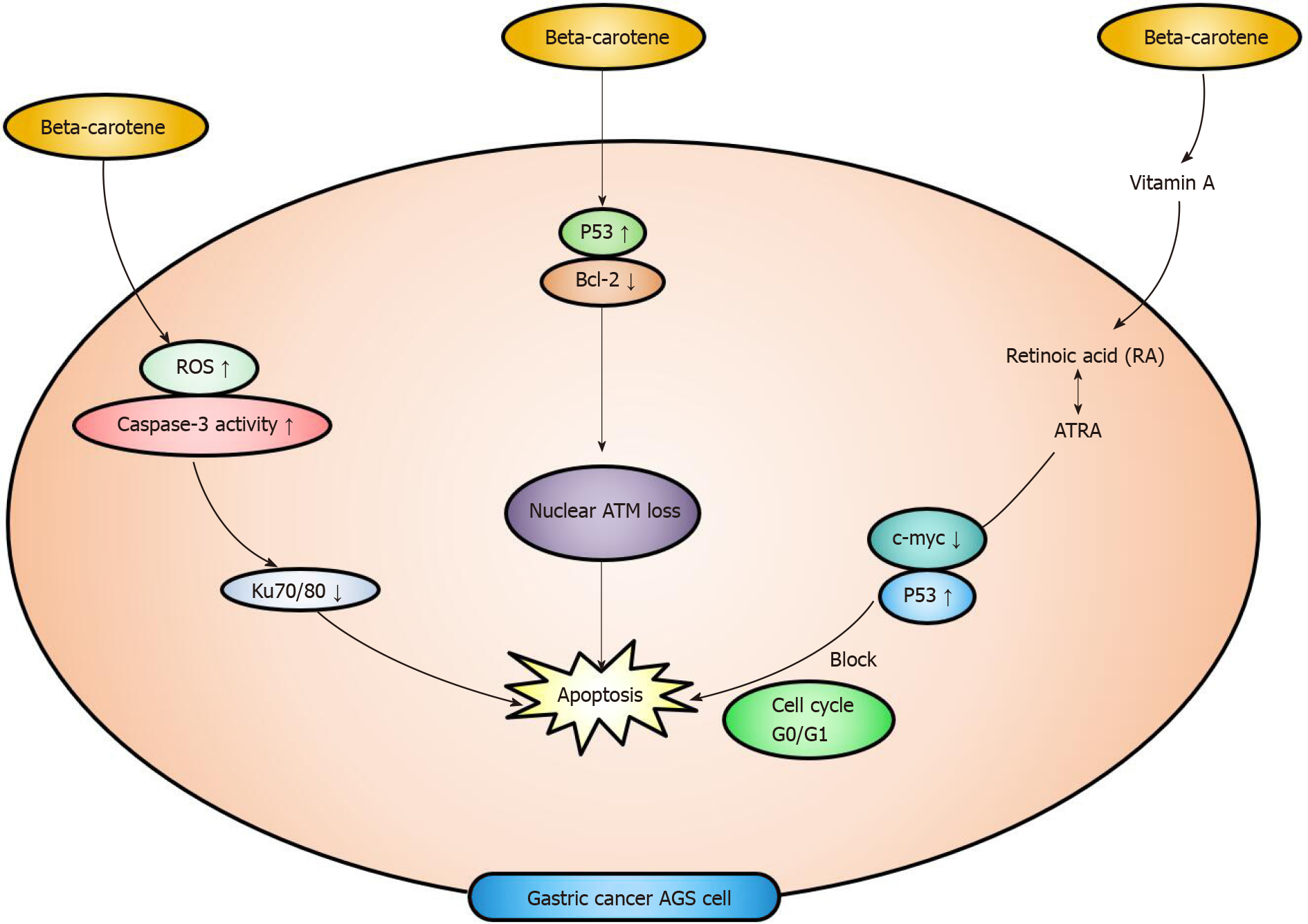Copyright
©The Author(s) 2021.
World J Clin Cases. Aug 16, 2021; 9(23): 6591-6607
Published online Aug 16, 2021. doi: 10.12998/wjcc.v9.i23.6591
Published online Aug 16, 2021. doi: 10.12998/wjcc.v9.i23.6591
Figure 3 Beta-carotene can induce the apoptosis of gastric cancer AGS cells by different pathways.
Beta-carotene can decrease the levels of Ku70/80 mediated with increased reactive oxygen species levels and caspase-3 activity in gastric cancer AGS cells, thus making the AGS cells apoptose. By increasing the level of p53 and decreasing the level of Bcl-2, the nuclear ataxia-telangiectasia-mutated decreases and cell apoptosis occurs. Beta-carotene can also turn into all-trans retinoic acid in gastric cancer AGS cells, then c-myc decreases and p53 increases. This process will block the cell cycle G0/G1, and apoptosis occurs. ROS: Reactive oxygen species; ATM: Ataxia-telangiectasia-mutated; RA: Retinoic acid; ATRA: All-trans retinoic acid.
- Citation: Chen QH, Wu BK, Pan D, Sang LX, Chang B. Beta-carotene and its protective effect on gastric cancer. World J Clin Cases 2021; 9(23): 6591-6607
- URL: https://www.wjgnet.com/2307-8960/full/v9/i23/6591.htm
- DOI: https://dx.doi.org/10.12998/wjcc.v9.i23.6591









